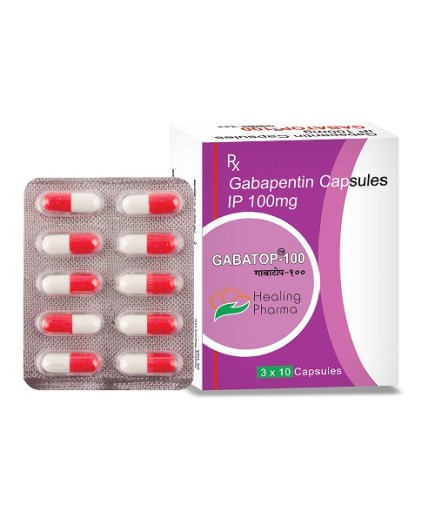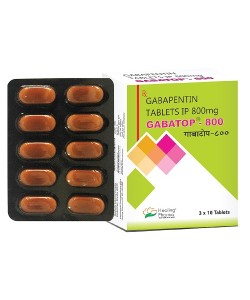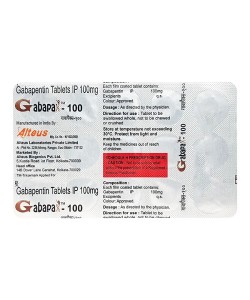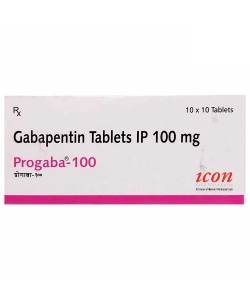Gabapentin 100 mg
- Brand: Healing Pharma, India
- Model: Gabapentin 100mg
- SKU: GBP100
- Active Ingredient: Gabapentin
- Treatment: Shingles Pain
- Availability: In Stock
Neuropathic pain associated with diabetic neuropathy often proves resistant to conventional pain relievers. As a result, medications that specifically target abnormal nerve signaling are frequently required. Gabapentin 100mg is among the most commonly prescribed agents for this purpose.
What Is Gabapentin 100mg?
The gabapentin 100mg tablet is a low-dose formulation of gabapentin, a medication originally developed to treat epilepsy but now widely used for neuropathic pain conditions, including diabetic neuropathy. It works by calming overactive nerve signals in the central nervous system, thereby reducing pain sensations such as burning, tingling, or electric shock–like discomfort.
Gabapentin 100mg Uses
Gabapentin 100 mg is commonly used for:
Neuropathic pain related to diabetic neuropathy
Restless legs syndrome (in some cases)
Seizure disorders (as part of combination therapy)
In diabetic neuropathy, gabapentin does not repair damaged nerves, but it can significantly reduce pain intensity and improve sleep quality, which is often disrupted by nighttime symptoms.
Gabapentin 100mg Dosage for Nerve Pain
The gabapentin 100mg dosage for nerve pain is typically individualized based on symptom severity, tolerance, and kidney function.
Treatment often begins with gabapentin 100 mg once daily, usually taken at night
The dose may be gradually increased over days or weeks to minimize side effects
Some individuals require multiple daily doses or higher strengths for adequate relief
Dose adjustments should always be guided by a healthcare provider. Abrupt discontinuation is discouraged, as it may worsen symptoms or cause withdrawal effects.
Benefits of Gabapentin 100mg in Diabetic Neuropathy
Targets nerve-related pain rather than general inflammation
Can be titrated slowly for improved tolerability
Useful for patients sensitive to stronger initial doses
May improve sleep disrupted by neuropathic discomfort
Possible Side Effects
While generally well tolerated, gabapentin 100mg may cause:
Drowsiness or fatigue
Dizziness or lightheadedness
Mild swelling of the legs or feet
Difficulty with coordination (less common at low doses)
Starting with a low dose such as 100mg helps reduce the likelihood and severity of these effects.
FAQ
Is gabapentin 100 mg effective for diabetic nerve pain?
Yes. Gabapentin 100 mg is often used as a starting dose for diabetic neuropathy and can be effective, especially when gradually increased under medical supervision.
How long does gabapentin take to work for nerve pain?
Some individuals notice improvement within a few days, but optimal pain relief may take several weeks as the dosage is adjusted.
Can gabapentin 100 mg be taken long-term?
Yes, many patients use gabapentin long-term for chronic neuropathic pain, provided they are regularly monitored by a healthcare professional.
Tags: Gabapentin 100 mg, Gabapentin 100mg, Gabatop









